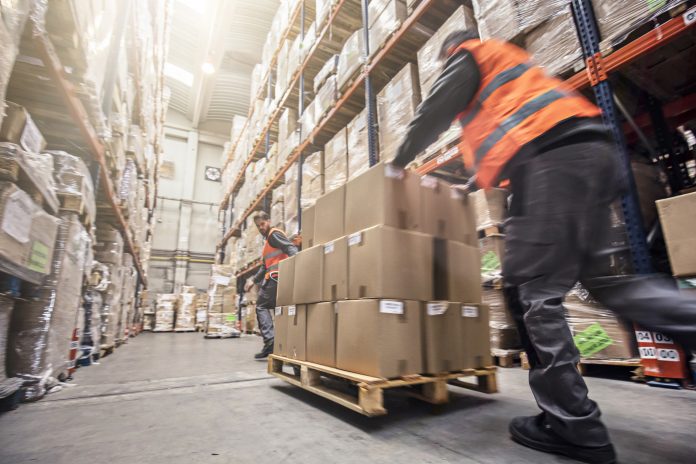Aaron Gardner, Data Visualisation and Insight Scientist at Lloyd’s Register Foundation, looks at what we can learn and the steps governments can take to start improving worker safety
Violence and harassment in the workplace is a global issue. Data from the Lloyd’s Register Foundation World Risk Poll showed that over one in five (21%) of workers globally have experienced violence and harassment at work.
The issue in numbers
The world is waking up to workplace violence and harassment. High-profile examples of inappropriate behaviour have shone a spotlight on the issue. Unfortunately, it is clear more must be done to make workplaces a safe space for all.
Earlier this year, Lloyd’s Register Foundation released a report titled Safe at Work? Global experiences of violence and harassment. Powered by Gallup, 125,000 people across 121 counties were surveyed to gather insight on their perceptions and experiences.
The findings showed that globally, 21% of all workers had suffered violence and harassment at some point in their lives. The ten countries reporting the highest rates of abuse were all high-income ‘Western’ countries, including all Nordic nations. Conversely, less than 4% of people in Georgia, Pakistan, Kazakhstan, and Tajikistan reported experiencing violence and harassment.
Furthermore, globally, 28% of those working outside of their country of birth have experienced workplace violence and harassment. Additionally, one-third of respondents who were both foreign-born and financially struggling had suffered abuse at work.
This should be alarming for those responsible for the welfare of workers, especially considering there are signs that people are not disclosing experiences. Globally, 52% of those who experienced violence and harassment at work told someone else about it. Those in Central and South Asia were the least likely to tell someone, while people in Australia, New Zealand, and East Asia were most likely. The reasons for not telling someone varied: 55% saw it as a waste of time, while 42% cited unclear procedures. Fear for reputation was the most prominent reason in the Middle East, North Africa, South-eastern Asia, and South Asia.
It is clear from the World Risk Poll that violence and harassment is taking place. As a result, what can governments and policymakers do to make a change?
Ratifying ILO convention 190
Given the data, international standards must be recognised to provide a framework for reducing the prevalence of violence and harassment. In 2019, the International Labour Organisation (ILO) convened in Geneva to ‘recognise the right of everyone to a world of work free from violence and harassment’. (1) The result saw the creation of ILO Convention 190 (C190), an inclusive, integrated and gender-responsive approach that all 187 countries can ratify into law.
As it stands, not enough countries are seeking to ratify ILO C190. It is currently operational in 21 nations, including Greece, Spain, and Italy – where experiences of violence and harassment are rife. Additionally, 15 other countries have ratified the convention but have not yet brought it into force. One of these is Canada, which approved C190 in January 2023, but the protections will not come into force until January 2024. According to Statistics Canada, in 2019, 25% of Canadian women and 17% of Canadian men experienced workplace sexual harassment.(2) Following the ratification of the ILO C190, Canada’s Minister of Labour, Seamus O’Regan, said: “No one should face violence or harassment on the job—not in Canada, or anywhere else. We’re joining countries around the world to protect workers, and make sure they have the safe, respectful workplaces they deserve.” (3)
151 ILO Member States are yet to have the convention as part of their legal system.
As a ratified signatory of C190, each country must adopt an approach in accordance with international law to eradicate violence and harassment in the workplace. This includes adopting a comprehensive strategy to prevent aggression from third parties, ensuring investigations take place once abuse is reported, and ensuring that adequate sanctions are given to confirmed perpetrators.
It is not mandatory for ILO Member States to ratify C190; it is a choice each government must make.
Time to lead the change
The results from the Lloyd’s Register Foundation World Risk Poll show change is needed, but a lot of work is required to ensure a consistent approach.
There are a number of measures in the ILO C190 that resonate with the statistics from the World Risk Poll. First, all members must ‘ensure easy access to appropriate and effective remedies and safe, fair and effective reporting.’ Findings from the poll show that many people – particularly those who are not born in the country they work in – are not entirely clear on the relevant procedures if they want to report experiences. While employers have a huge role in addressing this problem, ratification would provide critical impetus for developing a comprehensive national strategy. Implementation must also include access to redress and support victims, alongside tools for workers and employers.
ILO C190 is an important platform for the eradication of violence and harassment at work. Still, with only 20% of the world’s nations having ratified the convention, it is clear more must be done. One thing is clear: the world must act now before the issue of violence and harassment at work worsens.
For more information about Lloyd’s Register Foundation’s latest World Risk Poll, please visit lrfworldriskpoll.com.
References
- https://www.ilo.org/dyn/normlex/en/f?p=NORMLEXPUB:12100:0::NO::P12100_ILO_CODE:C190
- https://www150.statcan.gc.ca/n1/daily-quotidien/230113/dq230113b-eng.htm
- https://www.canada.ca/en/employment-social-development/news/2023/01/minister-oregan-ratifies-c190-the-first-ever-global-treaty-on-ending-violence-and-harassment-in-the-world-of-work.html











